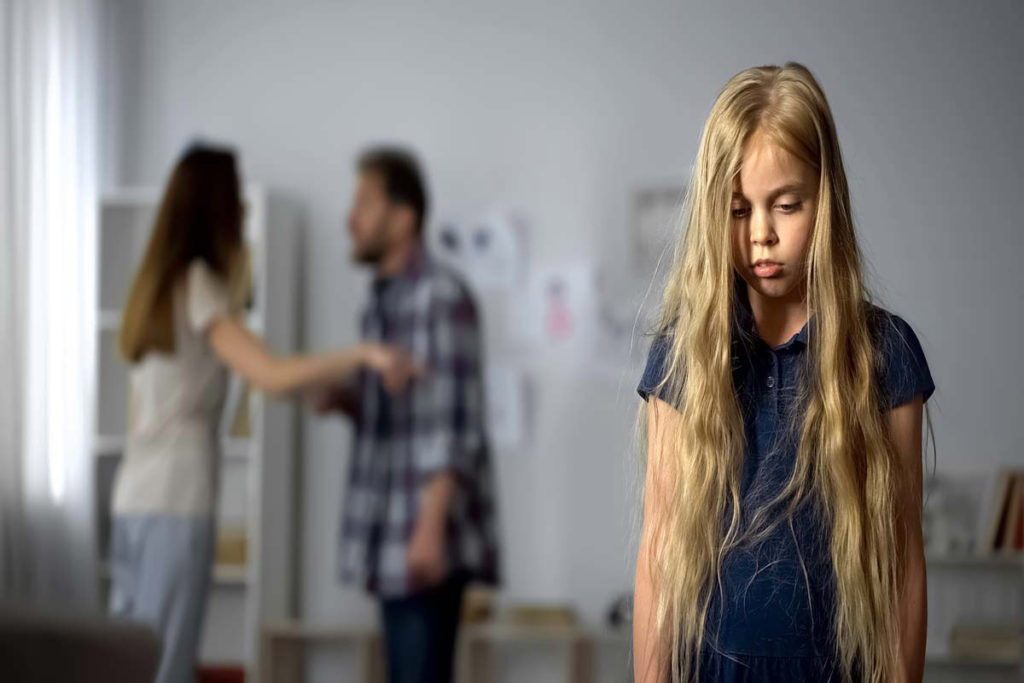People with a history of childhood trauma often carry those issues unconsciously forward into adult relationships. A pattern of childhood neglect, emotional or physical abuse, or a story involving sexual molestation or rape creates difficulties for adults as they attempt to make long-term bonds in committed relationships. It is not uncommon to find such an individual afraid to trust, frightened of emotional intimacy, connecting and then withdrawing from a loved one, or perhaps clinging in a frightened, childlike manner, fearful of abandonment. When conflicts arise, a person with a traumatic past may react to the conflict with more feeling or emotional reactivity than the situation warrants. More anger or more fear may be present than one expects. This may be troubling – or simply confusing – for their partner. It is important to understand how childhood pain leads to relationship trauma.
Disassociation in People with Unresolved Trauma
A complex mental process known as dissociation allows children and adults to cope with a traumatic experience. Dissociation is a sense of the world as a dreamlike or unreal place and may be accompanied by poor memory of specific events. Those who have a history of trauma are likely to have dissociated from the events themselves. They may spend a lot of time psychologically disconnected from the stress and anxiety of daily life. Others may relive their stories of trauma and may be highly susceptible to anxiety and worry. Likely having a difficult time coping with what others perceive as ordinary life circumstances. In the context of a relationship, someone with unresolved trauma may be most likely to dissociate whenever issues or feelings arise that are uncomfortable for them to bear, such as times of strain or conflict. They may appear out of touch, spaced-out or even cold and aloof.
How Childhood Pain Leads to Relationship Trauma
According to Tian Dayton, Ph.D., author of “Heartwounds: The Impact of Unresolved Trauma and Grief on Relationships,” someone with unresolved trauma is likely to enter into a pattern of behavior in relationships that reenacts their history of abuse or neglect. This occurs until the trauma has been made conscious and resolved through therapy or other means. A person who is dealing with trauma is likely to have either weak or rigid boundaries instead of having “flexible and well-modulated” boundaries, thus creating a state of hypersensitivity to conflict or conflict-avoidance. Such a person is less likely to be able to manage emotions and emotional responses easily. They may feel the need to control their environments and their partners in order to feel less vulnerable. They may become the helpless partner, someone who unconsciously chooses to have no self or environmental control. When involved in relationships, someone with a traumatic childhood may unconsciously reenact old wounds (e.g., by consistently seeking partners who are similar to an abusive parent), and will thus re-traumatize themselves in each relationship. This is just one of the ways that childhood pain leads to relationship trauma.
Signs of Unresolved Trauma
According to Dayton, some of the signs indicating that unresolved trauma is present are:
- Risk-taking behavior
- Desire to self-medicate with alcohol or drugs
- Chronic or recurring depression or feelings of despair
- Emotional constriction/lack of affect and spontaneity
- Drive to re-create painful emotional dynamics
- Loss of ability to modulate emotion
- Inability to take in support
- Psychosomatic symptoms
- Hypervigilance
Addiction, depression, anxiety disorders, post-traumatic stress disorders and even certain chronic diseases such as heart disease and type 2 diabetes are found more frequently in people with a traumatic childhood and for these reasons alone, the issue of working through grief and trauma should be taken very seriously. Many people suppress painful memories and emotions – sometimes for decades – or are simply unwilling to look at the source of the painful emotions they feel, the disconnection they experience from others and from their lives, and the problems they continually encounter in relationships. Sorting through one’s past trauma is the first step to healing these issues. It is critical to one’s health and potentially to the health of one’s children. As with most problems, recognizing that unresolved conflict is the source of your dysfunction is the first step. Although we cannot change the past, one’s reactions to it, both conscious and unconscious, can be. Bringing those unconscious patterns to the surface of awareness and committing to healing may be a life-saving step; it can certainly be a life-changing one. Working with a good therapist, finding a support group, reaching out to an online community of others who share a similar history, or reading supportive books about how to cope with the past and create a healthier today are some ways people are healing their pasts every day.
Get Help for Your Mental Health
Even someone with a tragic past can learn to trust others; can create a healthy, stable relationship; and can approach their world from a state of calm, inner peace, and knowing. These gifts are not merely for those who are lucky or who lived charmed existences; they are the realities of anyone willing to reach inside themselves with compassion and work to heal the past. Some common therapy programs that we offer to help address trauma and other mental health issues include:
- Cognitive therapy program
- Individual therapy program
- Dialectical therapy program
- Group therapy program
We cannot hide from our past traumas. Unresolved trauma can lead to issues in the future that can affect many aspects of a person’s life. Call 844.875.5609 today to learn how you can address childhood trauma and gain insights on how to heal is a more effective way. Protect yourself and the ones you love by addressing childhood pain that leads to relationship trauma.

